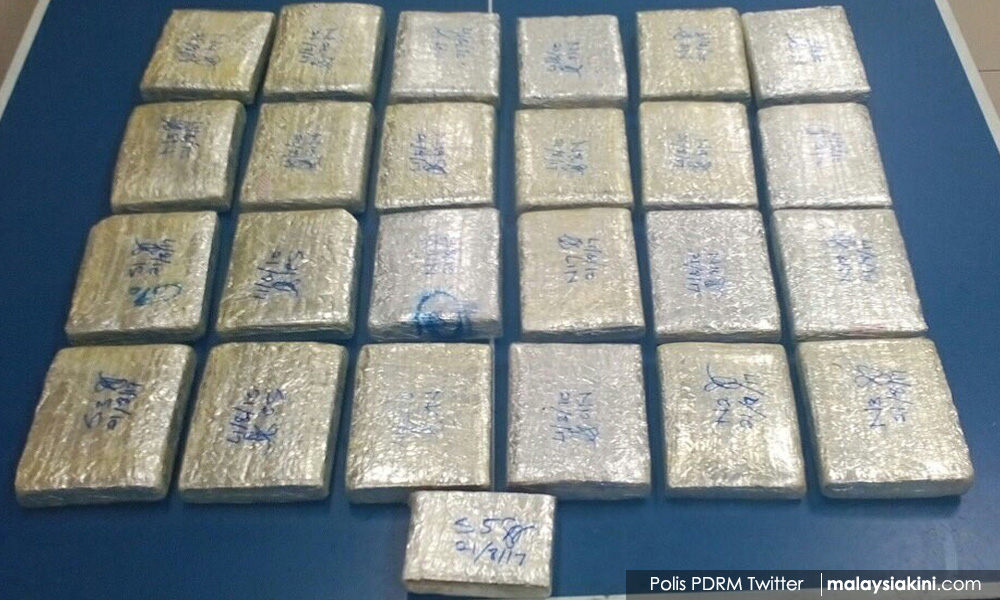
A total of 425 Malaysian drug mules have been detained by the authorities in 19 countries since 2013 until October this year, said Bukit Aman Narcotics Criminal Investigation Department (NCID) principal assistant director SAC Zulkifli Ali.
Zulkifli, in an exclusive interview with Bernama recently, said Singapore recorded the highest number of Malaysian drug mules, with 175 people languishing in its prisons.
It was followed by Indonesia where 85 Malaysians have been arrested, Thailand (49), Australia (34) and 21 people in Japan.
“In Latin American countries such as Argentina and Brazil, there are two Malaysians in custody each while one was detained in Peru.
However, he said, the number of Malaysian drug mules arrested abroad had been declining since 2016 where a total of 101 locals had been incarcerated, before it dropped to 58 people in 2017 and as of October this year, only 39 Malaysians had been arrested abroad.
The decline was attributed to continuous enforcement by the authorities, especially the Malaysia Royal Police (PDRM) against the syndicates by carrying out special operations in efforts to combat this heinous crime, he said.
Zulkifli also said that in order to avoid detection, the Nigerian-led syndicates had switched to the social media to recruit their victims.
“They (syndicates) use today’s borderless communication technology through social media applications such as Facebook, WhatsApp, WeChat and others to carry out drug-smuggling activities, specifically to recruit drug mules online to avoid their activities from being detected by the authorities,” he said.
Main culprits
He added that the international syndicates, often masterminded by African nationals, had been recruiting and hiring Malaysians, especially women by financing their flights to travel to certain countries.
The women would be given a RM2,000 pocket money and promised a reward of between RM5,000 and RM10,000 once they succeeded in their mission.
“It is an easy way to earn money as finance is the main factor for them to commit these crimes even though they themselves are fully aware of the risks involved.
“The victims, either married to the syndicate members or otherwise, will be asked to smuggle the drugs and if they succeed, these women will also recruit their friends for the same purpose,” he said.
Zulkifli said based on intelligence, Nigerian nationals were believed to be the main culprits in luring vulnerable Malaysian women and most of these syndicates were based in several countries, including Malaysia, Thailand, the Philippines, Indonesia and China.
The syndicates’ members entered the country using student passes or business visas to establish relationships with local women and to win the hearts of these women to the extent of marrying them.
Meanwhile, Zulkifli said Malaysians were also involved in smuggling drugs such as syabu abroad by using 'body packing' (drugs attached to body using adhesive tape, glue or straps) method and in November alone, four locals had been detained at the Kuala Lumpur International Airport 2 (klia2) for allegedly trying to smuggle out more than 4 kilograms of syabu to South Korea.
- Bernama



No comments:
Post a Comment
Note: Only a member of this blog may post a comment.